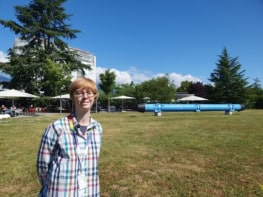
Academics with children become less productive and do work of lower impact as their childcare responsibilities increase. That’s the finding of a survey of 11,226 researchers around the world, which revealed the same trend for both male and female “lead” parents. But because women academics are much more likely to be the primary care providers – even when reporting equal sharing of parenting – it means that they suffer more scientifically when having children
Based on researchers who have written papers indexed in Clarivate Analytics’ Web of Science, the survey reveals that women play a much bigger role in raising children, with almost a third (30.6%) of female respondents being the primary care providers for their children, compared with just 3.9% of men fulfilling that role. More than half (52.0%) of women and 57.1% of men say they share childcare responsibilities in a “dual” parenting model. However, only 17.4% of women play a minor or “satellite” role in parenting, compared to 38.9% of men.
For women, it doesn’t matter if you are a lead parent, a dual parent or a satellite parent – the effect [of having children] is severe.
Gemma Derrick, Lancaster University
In terms of the number of papers they produce, both men and women report a similar drop in productivity when they are single or lead parents, compared with dual parents. Dual fathers, however, are more productive than dual mothers and have a smaller “parenting penalty”. The same goes for men who take a secondary role in parenting, who write more papers than secondary mothers. These patterns are also mirrored in terms of the scientific impact of their papers as measured by citation data.
“For women, it doesn’t matter if you are a lead parent, a dual parent or a satellite parent – the effect [of having children] is severe,” says Gemma Derrick, an education-policy expert at Lancaster University in the UK, who carried out the survey with colleagues in Canada, the Netherlands and the US . “But for men it is graded along whether you take a lead, dual or satellite parenting role. Men can choose to be a parent part-time or full-time with various effects on their productivity, but women don’t seem to have that choice.”
Questions on household duties in the survey, such as who feeds, bathes or plays with their children, shed some light on these differences. In nearly every parenting-related task, female dual parents are, in reality, more likely than male dual parents to report being the primary care provider. “We saw a lot of women,” Derrick says, “who, after completing the survey, went hang on ‘I realise I take on far more responsibilities than my partner, so maybe we are not in a dual parenting partnership after all’.”
A lot of women went hang on ‘I realise I take on far more responsibilities than my partner, so maybe we are not in a dual parenting partnership after all’.
Gemma Derrick, Lancaster University
Sharing of childcare is more equal, however, for women who divvy up their parenting duties with another academic. Mothers who share the workload with non-academic partners, in contrast, do far more childcare. That trend is reflected in scientific productivity, with women sharing parenting with academics writing more papers than those with non-academic partners. Quite why this should be is not clear, but open-ended responses to the survey suggest the reason lies in academic work being seen as more flexible.

Women scientists join forces at online quantum summit
Given that the level of childcare responsibilities is the main cause of gender differences in academic productivity, the authors suggest that policies should be introduced to let parents shift more easily between professional and parenting responsibilities. Academic institutions could, for example, provide on-site childcare and lactation rooms and also restructure conferences for the benefit of parents.



